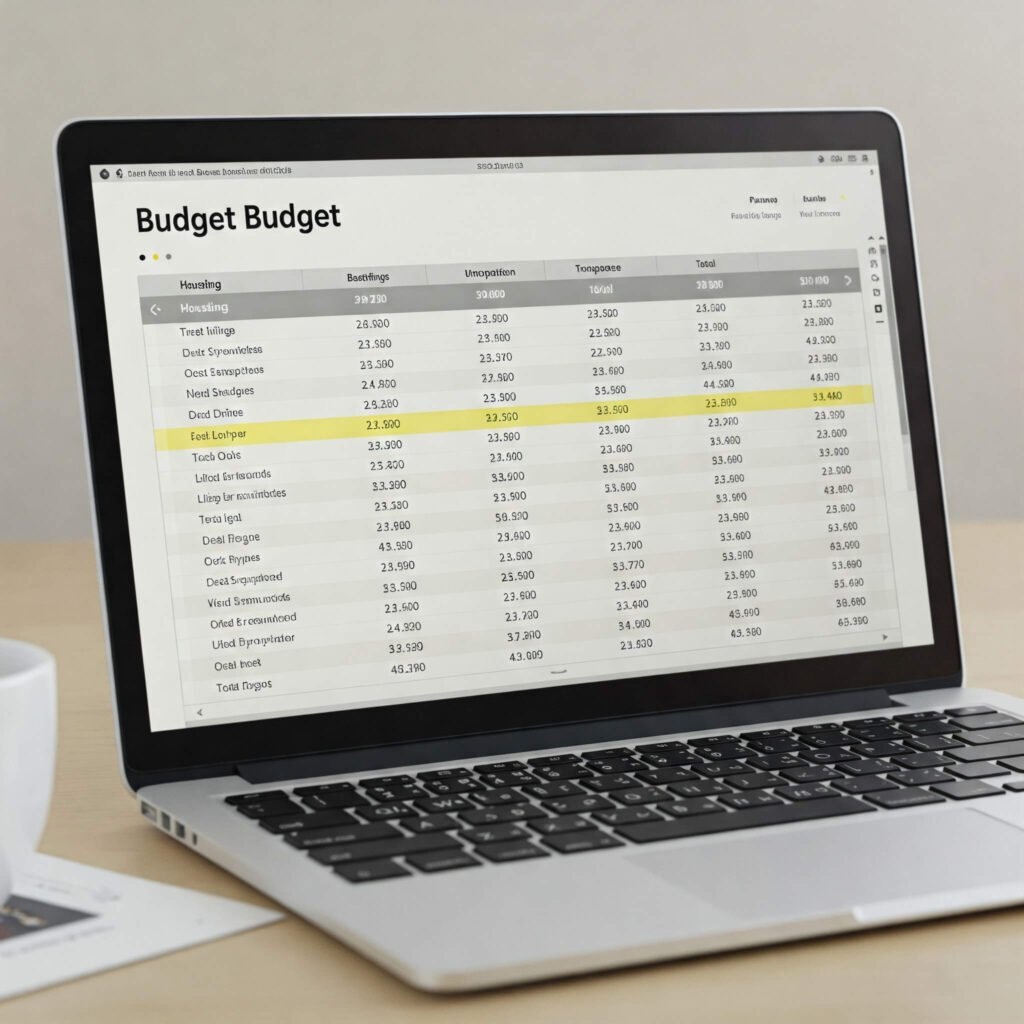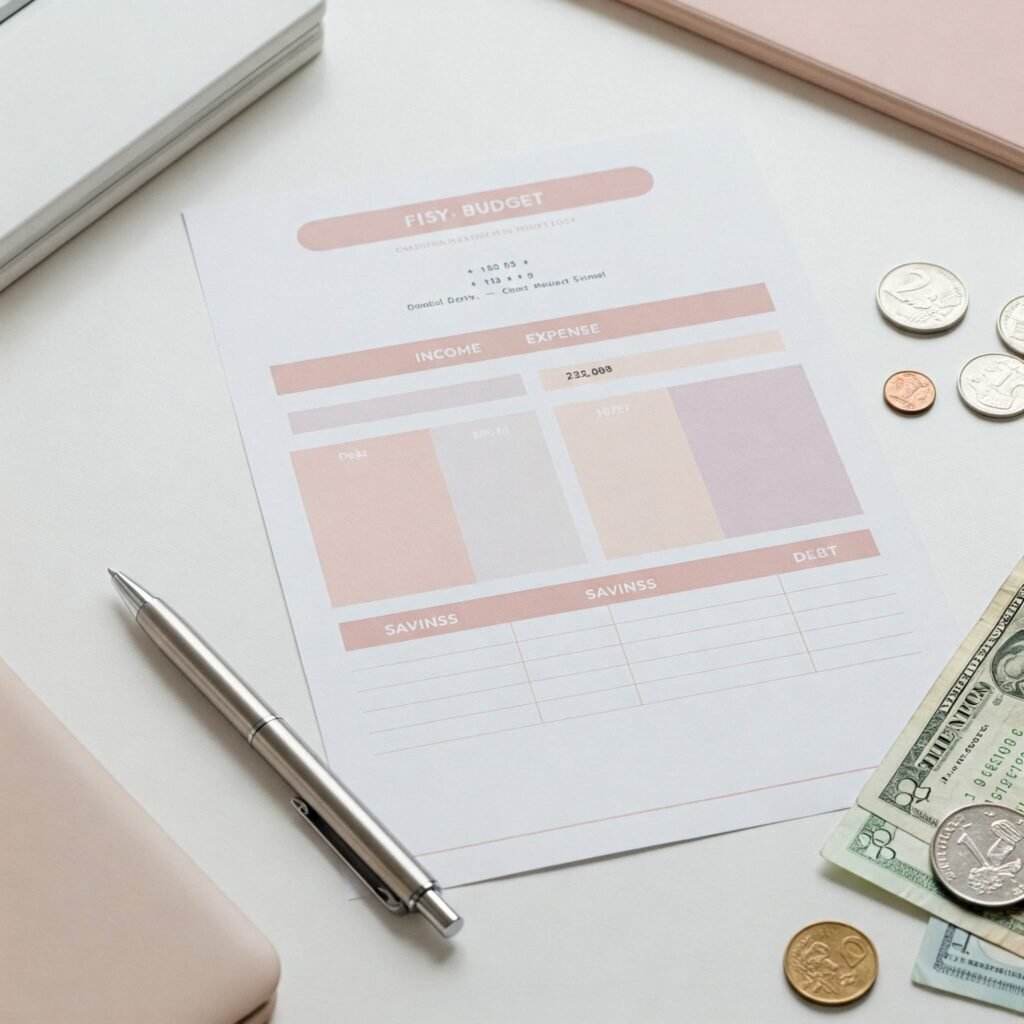Welcome! Feeling overwhelmed by your household expenses? You’re not alone. Taking control of your finances starts with a solid Household Budget Planner. This comprehensive guide will walk you through everything you need to know, from understanding the basics to utilizing effective templates and tools. We’ll equip you with actionable tips to create a budget that works for you and helps you achieve your financial goals.
Why You Need a Household Budget Planner
A Household Budget Planner isn’t just about tracking numbers; it’s about gaining clarity and control over your financial life. Here’s why it’s essential:
- Gain Financial Awareness: Understand where your money is actually going.
- Identify Spending Leaks: Pinpoint areas where you can cut back.
- Achieve Financial Goals: Save for a down payment, a vacation, or retirement.
- Reduce Financial Stress: Feel more secure knowing your finances are in order.
- Prepare for Unexpected Expenses: Build an emergency fund.
Choosing the Right Household Budget Planner for You
The best Household Budget Planner is the one you’ll actually use consistently. Here are some options to consider:
- Spreadsheet Templates: Tools like Google Sheets or Microsoft Excel offer customizable templates. They provide flexibility and allow for detailed tracking. You can find numerous free Household Budget Planner templates online.
- Pros: Free, customizable, detailed tracking.
- Cons: Can be time-consuming to set up and manually update.

- Budgeting Apps: Numerous apps are designed specifically for Household Budget Planning. They often offer features like automatic transaction syncing, goal setting, and visual reports. Popular options include Mint, YNAB (You Need A Budget), and Personal Capital.
- Pros: Convenient, often automated, provides insights and visualizations.
- Cons: May have subscription fees, requires linking financial accounts (security considerations).
- Pen and Paper: A simple notebook or budgeting journal can be surprisingly effective for those who prefer a more hands-on approach to their Household Budget Planner.
- Pros: No technology required, promotes mindful tracking.
- Cons: Manual calculations, less automation.
Essential Elements of an Effective Household Budget Planner
No matter which method you choose for your Household Budget Planner, certain elements are crucial for success:
- Income Tracking: List all sources of income (salary, side hustles, etc.).
- Expense Tracking: Categorize your spending (housing, food, transportation, entertainment, etc.). Be as detailed as possible.
- Setting Financial Goals: Define your short-term and long-term financial objectives.
- Regular Review: Schedule time (weekly or monthly) to review your Household Budget Planner and make adjustments as needed.
Actionable Tips for Successful Household Budget Planning
Here are some practical tips to make your Household Budget Planner work for you:
- Be Realistic: Create a budget that reflects your actual spending habits, not just what you think you should be spending.
- Track Everything: Don’t underestimate small expenses; they add up. Utilize your chosen Household Budget Planner diligently.
- Categorize Thoroughly: The more detailed your categories, the better insights you’ll gain.
- Prioritize Needs vs. Wants: Distinguish between essential expenses and discretionary spending.
- Involve Your Household: If you share finances, make Household Budget Planning a collaborative effort.
- Review and Adjust Regularly: Life changes, so your budget should too.
- Automate Savings: Set up automatic transfers to your savings accounts.
- Build an Emergency Fund: Aim for 3-6 months’ worth of living expenses.
- on’t Get Discouraged: There will be months where you overspend. Learn from it and adjust your Household Budget Plan accordingly.
Free Household Budget Planner Templates to Get Started
Ready to dive in? Here are some resources where you can find free Household Budget Plan templates:
- Microsoft Office Templates: Offers various budget templates for Excel.
- Google Sheets Template Gallery: Provides customizable budget spreadsheets.
- Reputable Financial Websites: Many personal finance blogs and websites offer downloadable Household Budget Plan templates.

Leveraging Tools for Efficient Household Budget Planning
Beyond spreadsheets and apps, other tools can aid in effective Household Budget Planning:
- Bill Payment Trackers: Help you stay on top of due dates and avoid late fees.
- Debt Management Tools: Assist in tracking and strategizing debt repayment.
- Investment Tracking Platforms: Offer insights into your investment growth.

Conclusion: Empowering Your Financial Future with a Household Budget Planner
Implementing a Household Budget Plan is a powerful step towards achieving financial well-being. By understanding your income and expenses, setting clear goals, and utilizing the right templates and tools, you can gain control of your money and build a more secure financial future. Start today and experience the peace of mind that comes with effective Household Budget Planning.
- [Outbound Reference Link: Link to a reputable review site comparing popular budgeting apps, e.g., NerdWallet’s Best Budgeting Apps: https://www.nerdwallet.com/best/apps/budget-apps]
- [Outbound Reference Link: Link to a reputable financial education website explaining the importance of an emergency fund, e.g., Investopedia’s Emergency Fund: https://www.investopedia.com/terms/e/emergency_fund.asp]
- [Outbound Reference Link: Link to a page offering free budget templates from a well-known financial blogger or website, e.g., Dave Ramsey’s Free Budget Forms: https://www.ramseysolutions.com/budgeting/budget-forms]







































